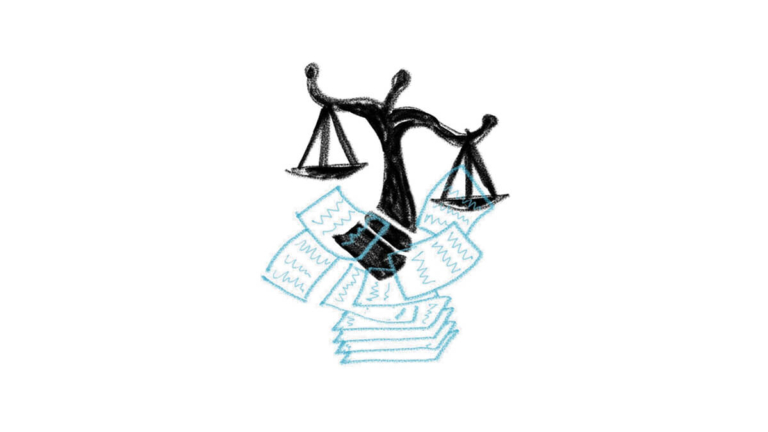Casebook Info
- Year Filed 2020
- Year of Most Recent Ruling 2022
- Year of Final Ruling 2022
- Jurisdiction Brazil
- Court Name Federal Supreme Court
- Primary Focus Mitigation
- Ruling On Merits
- Plaintiff(s) Political parties [Partido Socialista Brasileiro (PSB), Partido Socialismo e Liberdade (PSOL), Partido dos Trabalhadores (PT) e Rede Sustentabilidade]
- Respondent(s) Brazilian government
- Outcome Ruling for the plaintiffs
- Organizational leader of the litigation Laboratório do Observatório do Clima
Background
As the planet warms, a number of right-leaning and conservative governments have opted to freeze domestic mechanisms designed to fight climate change. This was the case in Brazil, where former president Jair Bolsonaro rose to power on, among other things, an explicitly anti-environment platform. He promised to dismantle the environmental frameworks and programs that protect Brazil’s vital ecosystems, and when he secured the presidency in 2019, his administration began at breakneck speed to do just that.
Like with the Amazon Fund, the government paralyzed the Climate Fund – the main federal instrument responsible for funding the fight against climate change and the country’s efforts to reduce the emission of greenhouse gases and meet its climate commitments. The Fund was established by legislation as part of the national climate change policy. In particular, it was established to ensure that the National Bank for Economic and Social Development (BNDES) and the Ministry of the Environment allocate resources for projects and finance activities that mitigate and adapt to climate change and its effects. The Fund itself is financed through royalties from oil exploration, among other sources.
The government deliberately kept the Fund inoperative in 2019 and 2020, as annual plans for it were not prepared and money was not disbursed. In addition, during the first months of Bolsonaro’s administration, the Minister of the Environment dissolved the agency responsible for managing the Fund while President Bolsonaro extinguished the Fund’s steering committee. This move bought the government time to reinstate the Fund’s committee with a composition that would favor the private sector, exclude civil society, and enhance government control of the Fund.
In light of this, civil society groups in Brazil organized to counter Bolsonaro’s anti-environment agenda. They decided to bring a “direct action of unconstitutionality by omission” – which asks the court to assess whether a government entity responsible for regulation is violating the Constitution by refusing to use its power and act. Because of the peculiarities associated with bringing this type of legal action to the Brazilian Federal Supreme Court, Brazilian NGOs teamed up for the first time with several domestic political parties to file the complaint. This synergy allowed NGOs to serve as the driving force behind the litigation while partnering with parties with a long history of constitutional litigation.
In the complaint, the petitioners argued that Brazil’s inaction on the Climate Fund violates Article 225 of the Constitution, which provides for the protection of the right to a healthy environment, ecological processes, special territories, and flora and fauna; and Article 23 of the Constitution, which establishes that federal and state government bodies must “protect the environment and fight pollution in any of its forms” and “preserve forests, fauna and flora.” The petitioners made clear that joint and defined action by all three powers of government is necessary for the state to meet its constitutional obligations. In addition, the petitioners argued that, by freezing the Climate Fund, Brazil violated its obligations under the Paris Agreement to implement measures that are compatible with the achievement of its nationally determined contribution (NDC). The petitioners therefore asked for an injunction that would require the federal government to: (i) undertake administrative measures to reactivate the operation of the Fund; (ii) prepare and present appropriate annual plans for the distribution of the Fund’s resources; and (iii) refrain from placing new contingencies on resources from the Fund.
In June 2022, the Supreme Court ruled loud and clear on its first climate change case. Basing its decision on the separation of powers doctrine and the constitutional right to a healthy environment, the Court ruled that the executive branch cannot ignore the mandate of the legislative branch and that it has a constitutional duty to implement and operate the Climate Fund to mitigate climate change. It also found that the judiciary must act to avoid regression in environmental protection.
In addition, the Court reiterated the state’s obligation to fulfill its international commitments and applied Article 5, §2, which states that the rights and guarantees expressed in the Constitution do not exclude others that stem from international treaties to which Brazil is a party. From this, the Court – in a groundbreaking analysis – clarified that the Paris Agreement must be followed and that it constitutes a type of human rights treaty, enjoying “supranational” status and operating above “regular” laws in the Brazilian legal hierarchy. With this in mind, the Court ordered the Brazilian government to fully reactivate its Climate Fund, granting the petitioners all three of their requested remedies.
Strategies
Centering rights

The plaintiffs’ request that the government reactivate the Climate Fund was largely based on the commitments to reduce greenhouse gas emissions that Brazil made under the Paris Agreement and that were integrated into domestic law via decrees. In order to elevate the status of the Paris Agreement further and secure its implementation, the Court took the strategic and groundbreaking step of declaring the Paris Agreement a human rights treaty, becoming the first court in the world to do so. It came to this conclusion by pointing to the increasingly recognized interdependency between the protection of the environment and the fulfillment of human rights. In Brazil’s legal system, human rights treaties to which Brazil is party are recognized as “supranational” by the Constitution. This means that the Paris Agreement now enjoys a privileged status, occupying a position superior to domestic laws. In the context of this case, this means that the government has a duty to mitigate climate change given its international commitments under the Paris Agreement.
More broadly, this new understanding helps guide future questions on the compatibility of climate-relevant laws with policies and the Paris Agreement: if there is a court challenge to a policy or a law in relation to the Paris Agreement, then there will be a presumption for the Paris Agreement, forcing the government to demonstrate that the challenged law is not in conflict with it. If any domestic law or decree is indeed found to contradict the Agreement, it will be invalidated. Any action or omission contrary to the Agreement, moreover, will be found to directly violate the Federal Constitution.
“Treaties on environmental law are a species of the genus human rights treaties and enjoy, for this reason, supranational status. Thus, there is no legally valid option of simply omitting to combat climate change.”
In addition, the plaintiffs centered the constitutional right to a healthy environment in their complaint, arguing that the government’s failure to administer the Fund violates this right. It does so because the allocation of resources from the Climate Fund materializes the constitutional duty to protect and restore the environment together with the fundamental rights that depend on it. The Court agreed and concluded that the right to a healthy environment imposes a duty on the government to defend, preserve, and restore the environment for present and future generations. It therefore analyzed the actions and omissions of the Brazilian government in regard to the Climate Fund through the lens of the duty to fulfill the right to a healthy environment, finding that it had been violated.
“Therefore, environmental protection is not part of the Chief Executive’s political judgment of convenience and opportunity. It is an obligation which the Chief Executive is bound to fulfill.”
Applying a developed body of law in the context of climate change

Centering constitutional law – specifically the constitutional right to a healthy environment – was a strategic choice by the plaintiffs that served in part to preliminarily address the separation of powers doctrine, which is often invoked by defendants in asking courts to dismiss climate lawsuits. In other words, the plaintiffs aimed to legitimize the Court’s intervention by making the violation of a fundamental right a core part of their argument. The Court agreed with the plaintiffs’ reasoning. Specifically, it found that by virtue of the principle of separation of powers – a well-established principle of Brazilian governance – the executive branch cannot ignore budget allocations made by the legislative branch in preparing the public budget. The Court explains that this is reflected in Brazil’s Fiscal Responsibility Law, which, among other things, limits the executive branch’s discretion to place contingencies on resources devoted to the protection and restoration of the environment.
The Court also noted that the potential violation of fundamental rights allows the judiciary to evaluate the actions of administrative bodies and elected representatives. While maintaining deference to allocation choices made by elected representatives, the Court explained that it “can and should exercise control over such allocative acts” if it “found that such choices are vitiated by misuse of purpose, lack of plausibility of the reasons that determined them or violation of proportionality, implying serious damage to the essential core of fundamental rights.” In other words, as soon as a fundamental right is threatened, the case no longer raises a political question but rather a legal question amenable to judicial review. With this, the case opens the door for prosecution against the Brazilian government if there is any type of malpractice in the use of resources to mitigate the climate crisis.
“The objective data presented above highlight a situation of collapse in public policies to combat climate change, undoubtedly aggravated by the omission of the current Executive. In contexts like these, it is the role of the supreme courts and constitutional tribunals to act to prevent retrogression.”
Lastly, the Court underscored that the broader systemic suppression and weakening of administrative bodies and the reduction of civil society participation in these bodies have already been considered unconstitutional by the Supreme Court in prior decisions. Such acts, according to the Court, compromised fundamental and well-established constitutional principles, including transparency and accountability of administrative bodies and elected representatives and, consequently, democracy itself.
Emphasizing the urgency of taking climate action now, given the compounding and permanent effects of climate change as time progresses

The plaintiffs placed this case in the wider context of the climate emergency and emphasized the important role that Brazil must play in finding solutions for it. With this in mind, and due to the impending damage and rights violations posed by climate change, the plaintiffs sought urgent relief to speed up the case. The Court did indeed appreciate the time-sensitivity of the issue and the need for relief and adopted an urgent procedure for the action.
Take-aways
The case clearly demonstrates the pressure that climate litigation can place on governments refusing to do their part in the climate fight.
Indeed, this was made clear even before the Supreme Court ordered the government to change its behavior. As soon as the action was filed, Bolsonaro’s Minister of the Environment and Minister of Finance rushed to – albeit inadequately – allocate some funds of the Climate Fund.
The case may provide a template for other supreme courts around the world to elevate the Paris Agreement to the status of human rights treaty – therefore providing the Agreement superior normative status in domestic legal systems.
This would, in theory, improve the implementation of obligations stemming from the Paris Agreement – given its elevated importance – and produce clearer and more consistent resolution of cases concerning the Paris Agreement.
The case underscores the importance of climate finance – an issue central to the Paris Agreement and global climate negotiations more generally.
While institutions have established initiatives that commit private capital for the transition to net-zero emissions, there remains a gap with respect to state financial institutions. Governments will have to direct budgetary resources to the transition away from fossil fuels and other drivers of climate change. In this case, the Court clearly signaled that this key government financial contribution is not a matter of choice. Because public climate finance is public policy, it is governed by domestic legal frameworks that require the government to act in accordance with established rules. In obliging the government to act in accordance with these rules, the decision plays an unparalleled role in unlocking much-needed climate finance.
Impacts
The case has pushed the government into taking action to operationalize the main financial mechanism for climate action in Brazil.
By establishing positive precedent, the case will likely allow judges and justices in Brazil and around the world to more comfortably rule on issues of climate change and climate finance.
The case sends an important signal globally regarding the importance of the Paris Agreement in tackling the climate crisis and its binding nature.

